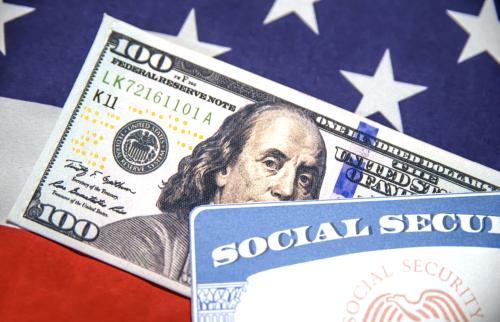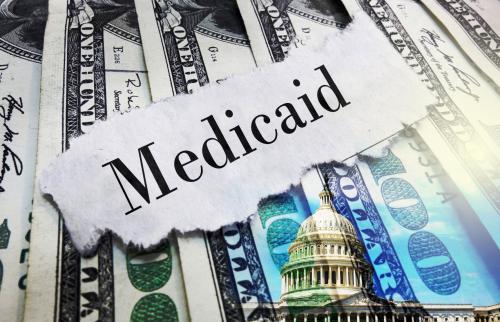Despite some recent blips of good news, U.S. economic and fiscal policy is slowly but surely headed in the wrong direction. Without changes, things can and will get far worse. Unfortunately, the nation’s policymakers seem unlikely to act before the situation reaches a crisis, and yet failing to act makes a crisis at some point virtually certain.
The situation is pretty simple. The private sector is saving next to nothing. The federal government continues to borrow substantial amounts. As a result, national saving — the combined thriftiness of government, businesses and households — is at its lowest level since the Depression, and the nation is borrowing massive and growing amounts from abroad. All of this is coming at the worst possible time, as the nation prepares for the tremendous pressure on Medicare, Medicaid and Social Security created by the imminent retirement of the baby boomers and rising healthcare spending.
A family that saved nothing, borrowed a lot and lived well beyond its means just as it was nearing retirement would raise obvious red flags. The problems are no different — only bigger — at the national level. Low saving reduces our future national income. Borrowing from abroad is a deceptive palliative. Because our foreign creditors have to be paid back, foreign borrowing mortgages whatever future income the country generates.
The Bush administration and its apologists have responded to this situation with a mixture of denial and obfuscation. First, we are told that the current account deficit is a good thing because it indicates that the U.S. is a good place to invest. This would ring true if historically high borrowing from abroad were matched by historically high domestic investment, but it is not. Rather, we are investing about the same as in the past but borrowing a lot more.
Second, we are told that the official data are inaccurate and the country is really saving a lot, as evidenced, for instance, by the boom in housing prices. There are clearly shortcomings in how saving is measured, but even so, accurate measures of saving would show the U.S. saving very little. For instance, the boom in housing prices does not represent an increase in national resources. Existing homeowners are better off, but anyone who wants to buy a home is worse off. There is no net gain in saving.
Lastly, we are reminded that we had a fiscal problem in the 1980s and 1990s — big tax cuts, rising defense spending, deficits as far as the eye could see — and it went away, so what is the big deal now?
The big deal is that we are even less equipped to deal with the deficit problems now than we were in the Reagan era. Nor did the problems just disappear on their own. They were resolved through difficult political choices and some good luck.
In economic terms, the nation was much better prepared to deal with deficit problems in the 1980s than now. The retirement of the baby boomers was still 25 years ahead. Now it is on our doorstep, giving the budget little or no time to recover before entitlement-spending pressures begin in earnest. Private saving was also significantly higher then, meaning that large budget deficits ate up a smaller share of available capital accumulation. The U.S. was a substantial international creditor then, but is now the world’s biggest debtor.
The nation’s leaders were also more honest in dealing with the deficit then. President Reagan backtracked on the 1981 tax cuts, allowing tax increases in 1982 and 1984, when it became apparent that deficits were growing. Today’s Bush administration continues to propose tax cuts under any economic situation.
In 1990, a bipartisan agreement raised taxes and cut spending. In 1993, President Clinton and congressional Democrats pushed through a further budget-tightening package. Both of these packages imposed strong budgetary rules, and together they helped restore fiscal balance. In stark contrast, the Republicans who now control Congress and the White House have overwhelmingly embraced the “no new taxes” pledge. At the same time, they have abandoned the budget rules, raised defense and non-defense spending and enacted the largest entitlement increase — the Medicare prescription drug benefit — in several decades.
Finally, we got lucky during the 1990s. The end of the Cold War cut defense spending by about 3% of the economy. A similar decline now is implausible, especially because it would mean the virtual elimination of the defense budget. The Internet and technology boom also substantially raised revenue — something we can’t bank on again.
So should we be worrying about the deficit? Not if we can magically delay the retirement of the baby boomers for another 25 years, increase private saving and restore the nation to international creditor status, reinstate policymakers willing to take political risks to reduce the deficit and assume that we will repeat a streak of great luck.
In the real world, though, wouldn’t it would be better to act before we’re forced to do so?
The Brookings Institution is committed to quality, independence, and impact.
We are supported by a diverse array of funders. In line with our values and policies, each Brookings publication represents the sole views of its author(s).



Commentary
Op-edU.S. Economy: We’re All Living on Borrowed Time
June 1, 2005